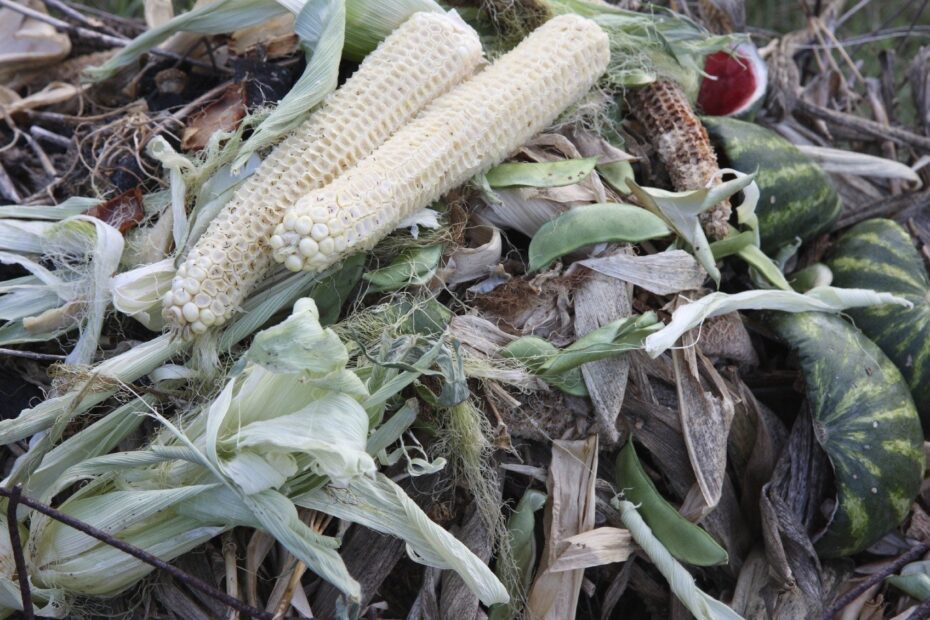Unleash your inner corn whisperer as we embark on an odyssey to unravel the enigmatic fate of corn cobs in the realm of composting. We invite you to venture into the labyrinth of decomposition, where curiosity meets sustainability, and the cycle of nature unfolds its secrets. In the quest for green living, it’s essential to understand how long these seemingly indestructible maize remnants truly take to break down into humus-rich goodness. So, gather ’round, dear readers, as we embark on a captivating journey to unearth the mystifying narrative of corn cobs in the ever-evolving world of composting.
Breaking Down Corn Cobs: Understanding Composting Times
If you’ve ever wondered about the composting times for corn cobs, you’re in the right place. Composting is not only a fantastic way to reduce waste and enrich your garden, but it also serves as a valuable learning experience. When it comes to corn cobs, they may take a bit longer to break down compared to other compostable materials due to their tough and fibrous nature. However, with the right techniques and a little patience, you can effectively turn your corn cobs into valuable compost for your garden beds. Let’s explore the fascinating world of corn cob composting together!
Features and Tips:
| Feature/Tips | Description |
|---|---|
| Shredding | To speed up the composting process, consider shredding your corn cobs into smaller pieces. This will increase the surface area and expose more material to the decomposers, resulting in faster breakdown. |
| Moisture | Ensure that your compost pile has the right moisture content. Corn cobs tend to be dry, so it’s important to moisten them periodically while maintaining proper overall moisture levels in the pile. |
| Turning | Regularly turn your compost pile to provide oxygen and distribute moisture evenly. This will enhance the decomposition process and help break down corn cobs more efficiently. |
Decomposition Factors: Key Influences on Corn Cob Composting
When it comes to composting corn cobs, understanding the key influences on decomposition is essential to determine how long the process will take. Several factors play a crucial role in breaking down these agricultural remnants and turning them into nutrient-rich compost for your garden. So, let’s delve into the world of corn cob composting and uncover the secrets behind its decomposition.
Moisture Content
Moisture is one of the most critical factors for decomposing corn cobs efficiently. A balance must be struck between too much or too little moisture. Excessive moisture levels can lead to anaerobic conditions, slowing down decomposition and resulting in unpleasant odors. Conversely, if the corn cobs are too dry, they won’t break down effectively. Aim for a moisture content that resembles a wrung-out sponge to encourage the growth of beneficial microorganisms.
Carbon-to-Nitrogen Ratio
The carbon-to-nitrogen ratio plays a pivotal role in the decomposition of corn cobs. Maintaining a proper ratio in your compost heap, around 30:1, ensures an optimal environment for microorganisms to thrive. Corn cobs are rich in carbon, so to balance it out, incorporate nitrogen-rich materials like grass clippings or kitchen scraps. This will expedite the decomposition process and help prevent the accumulation of compacted, slow-to-decompose matter.
Temperature
The temperature at which corn cobs decompose is another significant factor influencing composting speed. Higher temperatures accelerate decomposition, so if you’re eager to obtain compost quickly, consider turning the compost pile regularly or using a compost thermometer to monitor the temperature. Aim to keep the temperature between 120 to 160°F (49 to 71°C) for optimal microbial activity, ensuring a faster breakdown of the corn cobs.
| Tips | |
|---|---|
| Aerate your pile: | Regularly turning or aerating your compost pile will introduce oxygen, speeding up decomposition and preventing foul odors. |
| Add nitrogen-rich ingredients: | Balance out the high carbon content of corn cobs by incorporating nitrogen-rich materials, such as grass clippings or vegetable scraps. |
| Shred or chop the corn cobs: | Breaking down corn cobs into smaller pieces before composting allows for faster decomposition and increased surface area for microbial activity. |
Accelerating the Process: Proven Strategies for Composting Corn Cobs
When it comes to composting, corn cobs are a great addition to your compost pile. Not only do they provide valuable nutrients to your soil, but they also break down relatively quickly. But just how long do corn cobs take to compost? Let’s explore some proven strategies and tips to accelerate the composting process for these golden husks.
Optimal Conditions:
To enhance the decomposition of corn cobs, it’s crucial to create the ideal environment. Here are some features and tips to ensure quick and successful composting:
ble-container">| Features | Tips |
|---|---|
| 1. Proper aeration | Aerate the compost pile regularly by turning it at least once a week to provide oxygen that fuels the decomposition process. |
| 2. Optimum moisture | Maintain a moisture level of around 50-60% in your compost pile. Too dry, and decomposition slows down; too wet, and it may lead to unpleasant odors. |
| 3. Carbon-nitrogen ratio | Achieve a balanced carbon-nitrogen ratio of approximately 30 parts carbon to 1 part nitrogen by mixing corn cobs with other organic materials like green garden waste or kitchen scraps. |
Accelerating Decomposition:
While corn cobs naturally decompose within 6-12 months, these strategies can help expedite the process:
- Grind or chop the corn cobs into smaller pieces to increase the surface area and expose them to the composting microbes.
- Mix shredded corn cobs with other easily compostable materials such as grass clippings or tea leaves to provide a balanced and diverse diet for the microorganisms.
- Add a compost activator or accelerator containing beneficial bacteria and enzymes to speed up decomposition. Look for organic options available in gardening stores.





